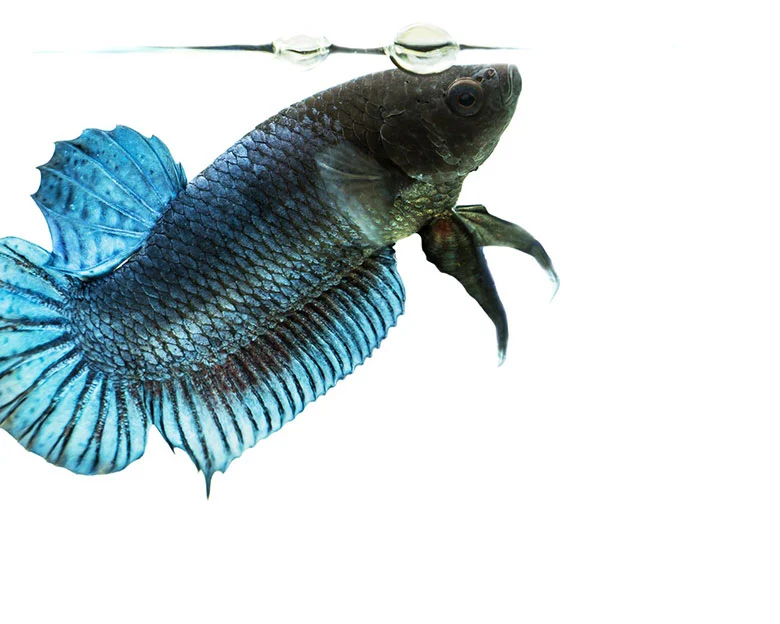Are you a Betta Fish enthusiast looking for Betta Fish tank tips to create a safe and healthy environment for your fish? Betta fish are beautiful creatures that require proper care to thrive in a home aquarium.
In this article, we will provide you with essential tips for setting up and maintaining a betta tank, selecting compatible tank mates, and ensuring the overall health and well-being of your fish.
Firstly, it’s important to understand the characteristics of betta fish and how to set up their tank appropriately. Bettas require a heated and filtered tank with plenty of hiding spots and a suitable substrate. We’ll guide you through the necessary steps to create an ideal tank environment that will help your betta thrive.
Secondly, maintaining the water quality of your tank is crucial for the health of your fish. We’ll give you tips on proper tank maintenance, including regular water changes and filter cleaning. With our expert guidance, you’ll be able to keep your betta tank healthy and your fish happy.
Key Takeaways
- A 10-gallon tank can house up to 2 male bettas with an opaque divider or a sorority of up to 5 female bettas.
- Tank maintenance is crucial for the health of betta fish, including cleaning, changing filters, and doing water changes to maintain water quality.
- Choosing tank mates for bettas should be done carefully, as male and female bettas should not be kept together, and compatibility with other fish does not guarantee compatibility with a particular betta.
- Overcrowding a betta tank can cause stress and weakened immune systems in bettas, leading to health issues.
Betta Characteristics and Tank Setup
If you’re looking to keep bettas in a 10-gallon tank, it’s important to understand their characteristics and tank setup requirements.
Betta fish are known for their bright colors and flowing fins, as well as their intelligence. However, male bettas are territorial and aggressive, while female bettas can be kept in sororities of up to 5 fish and may still display territorial behavior. This means that if you want to keep male bettas together, you will need to use an opaque divider to prevent fighting.
When it comes to feeding your betta fish, there are a variety of options available. Betta fish are carnivorous and need a diet that is high in protein. You can feed them live or frozen foods such as brine shrimp, bloodworms, or daphnia.
There are also many high-quality pellet and flake foods available that are specifically formulated for betta fish. However, it’s important to avoid overfeeding your bettas, as this can lead to health problems and poor water quality in your tank.
Tank Maintenance and Water Quality

To maintain a healthy environment for your aquatic pets, regularly cleaning the tank, changing the filter, and performing water changes are essential tasks that need to be done. Neglecting these tasks can lead to a buildup of harmful toxins and pollutants that can be detrimental to the health of your bettas. Here are some tips to help you maintain a clean and healthy tank:
- Regular cleaning: Clean the tank at least once a week, removing any uneaten food, fish waste, and debris. Use a siphon to vacuum the gravel, and wipe down the sides of the tank with a clean cloth.
- Water conditioner: Use a water conditioner to remove harmful toxins from tap water before adding it to the tank. Follow the instructions on the bottle carefully to ensure that you add the correct amount.
- Testing water quality: Test the water regularly to ensure that the pH, ammonia, nitrite, and nitrate levels are within the safe range for bettas. If any of these levels are high, perform a water change immediately.
- Filtration system: Keep the filter running at all times, but make sure to clean or replace it as needed. A dirty or clogged filter can reduce its effectiveness and lead to poor water quality.
By following these tips, you can help ensure that your bettas stay happy and healthy in their 10-gallon tank. Remember to always do your research and consult with a veterinarian or aquatic expert if you have any concerns about the health of your pets.
Choosing Tank Mates
Create a harmonious aquatic community by carefully selecting compatible companions to coexist with your bettas. While bettas can be kept alone, adding other fish can add interest and diversity to the tank. However, it is important to choose tank mates that are compatible with betta temperament. Incompatible tank mates can cause stress and aggression, leading to potential harm to the bettas and other fish.
To help you choose the right tank mates for your bettas, refer to the following table. Keep in mind that these are general guidelines and individual bettas may have different temperaments. Thorough research and observation of your bettas’ behavior is necessary before adding any tank mates. Remember, a happy and healthy aquatic community starts with careful consideration and selection of compatible tank mates.
| Compatible Tank Mates | Incompatible Tank Mates |
|---|---|
| Neon tetras | Guppies |
| Corydoras catfish | Mollies |
| Harlequin rasboras | Angelfish |
| Ghost shrimp | Dwarf gouramis |
By choosing compatible tank mates and observing your bettas’ behavior, you can create a peaceful and enjoyable environment for your fish. Remember to always research and carefully consider the temperament of your bettas before adding any tank mates to the tank.
Betta Health and Safety
Maintaining the health and safety of your bettas is crucial for their well-being. As a responsible betta owner, you must be aware of the common illnesses that can affect your fish and take steps to prevent betta stress. Here are some tips to help keep your bettas healthy and happy:
- Proper tank maintenance: Regular cleaning and water changes are essential in maintaining a healthy environment for your bettas. Overcrowding can lead to stress and weakened immune systems, so make sure to keep the tank size appropriate and avoid adding too many fish.
- Water quality: Poor water quality can lead to a variety of illnesses, including fin rot and bacterial infections. Use a water conditioner to remove harmful toxins from tap water and test the water regularly to ensure proper pH levels.
- Feeding: Overfeeding can cause digestive issues and pollute the tank. Stick to a regular feeding schedule and offer a varied diet of high-quality betta pellets and live or frozen foods.
- Betta stress prevention: Bettas can become stressed from various factors, including overcrowding, inadequate hiding spots, and aggressive tank mates. Provide plenty of hiding spots and choose tank mates carefully to avoid aggression.
By following these tips, you can help prevent common betta illnesses and ensure a healthy and happy life for your fish. Remember to always monitor your bettas for any signs of illness and seek veterinary care if necessary.
Frequently Asked Questions
Can Betta Fish Live Without A Filter?
Betta fish can survive without a filter, but it’s not recommended for optimal health. Alternatives to filters include frequent water changes, live plants, and adding beneficial bacteria. Proper Betta fish care without filters is essential to prevent water pollution and maintain a healthy environment.
How Often Should You Feed Betta Fish?
To keep your betta fish healthy, feed them small amounts of high-quality food twice a day. Avoid overfeeding, which can lead to health issues and polluted water. Stick to a consistent feeding schedule to maintain their health and happiness.
Can Betta Fish Live With Other Types Of Fish?
Betta fish compatibility with other types of fish varies, but generally, they are best kept alone or with specific tank mates. Choosing appropriate tank mates for bettas is crucial to prevent aggression and stress.
What Is The Ideal Water Temperature For Betta Fish?
To maintain optimal heating for betta fish, keep the water temperature between 78-80°F and use a heater with a thermostat to regulate it. Temperature maintenance is crucial for betta health and should be monitored regularly.
Can Betta Fish Live In A Bowl Without A Heater?
No, betta fish cannot live in a bowl without a heater. Bowl alternatives include a 5-gallon tank with a heater and filter. Heating options include preset heaters or adjustable heaters with a thermometer.

